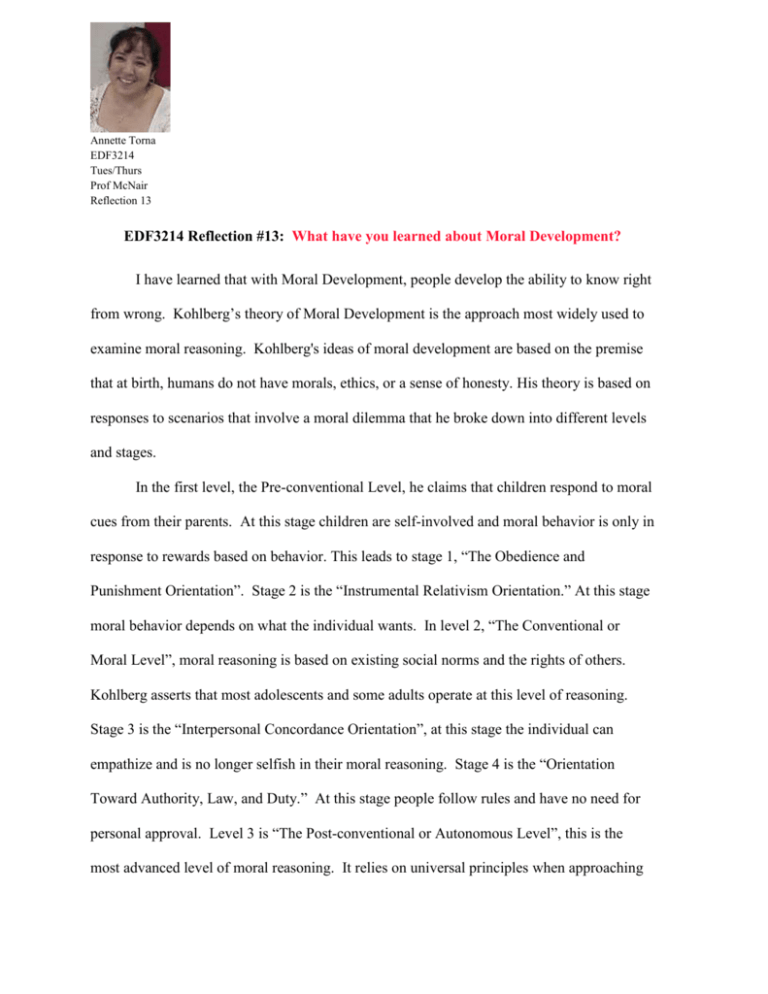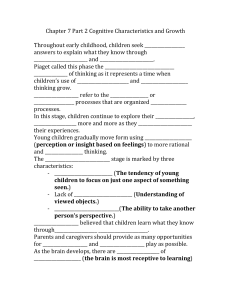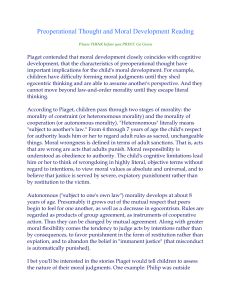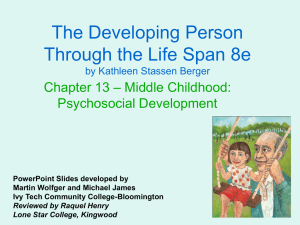EDF3214 Reflection #13: What have you learned about Moral
advertisement

Annette Torna EDF3214 Tues/Thurs Prof McNair Reflection 13 EDF3214 Reflection #13: What have you learned about Moral Development? I have learned that with Moral Development, people develop the ability to know right from wrong. Kohlberg’s theory of Moral Development is the approach most widely used to examine moral reasoning. Kohlberg's ideas of moral development are based on the premise that at birth, humans do not have morals, ethics, or a sense of honesty. His theory is based on responses to scenarios that involve a moral dilemma that he broke down into different levels and stages. In the first level, the Pre-conventional Level, he claims that children respond to moral cues from their parents. At this stage children are self-involved and moral behavior is only in response to rewards based on behavior. This leads to stage 1, “The Obedience and Punishment Orientation”. Stage 2 is the “Instrumental Relativism Orientation.” At this stage moral behavior depends on what the individual wants. In level 2, “The Conventional or Moral Level”, moral reasoning is based on existing social norms and the rights of others. Kohlberg asserts that most adolescents and some adults operate at this level of reasoning. Stage 3 is the “Interpersonal Concordance Orientation”, at this stage the individual can empathize and is no longer selfish in their moral reasoning. Stage 4 is the “Orientation Toward Authority, Law, and Duty.” At this stage people follow rules and have no need for personal approval. Level 3 is “The Post-conventional or Autonomous Level”, this is the most advanced level of moral reasoning. It relies on universal principles when approaching moral problems. Stage 5 is the “Social Contract Orientation” which relies on principles like equality and human dignity. Stage 6 is the “Universal Ethical Principles Orientation”. Kohlberg says this stage is rarely reached. It is based on principles that are self-generated and that apply universally. Jean Piaget is one of the first psychologists whose work is directly related to contemporary theories of moral development. He focused on the moral lives of children by studying the way they play games. He did this to learn more about children's beliefs about right and wrong. According to Piaget, all development comes from interactions with the environment. Based on his observations of children's rules when playing, Piaget determined that morality can be considered a developmental process. Piaget also interviewed children regarding stealing and lying. Piaget concluded that children begin in a "heteronomous" stage of moral reasoning, characterized by sticking to rules, duties, and obedience to authority. Piaget viewed moral development as the result of interpersonal interactions. He said that people work out problems that they all agree is fair. This autonomous view of morality as fairness leads to more consistent behavior. Piaget concluded from his work that schools should “emphasize cooperative decision-making and problem solving, nurturing moral development by requiring students to work out common rules based on fairness.” I agree with Piaget when he said that a classroom teacher should provide students with opportunities for personal discovery through problem solving, rather than teaching students with norms. Carol Gilligan suggested that Kohlberg's theories were biased against women because he only used males in his studies. Gillian claimed that morality of caring and responsibility is based on nonviolence, while the morality of justice and rights is based on equality. Gilligan emphasized morality of care as emphasized by the way girls’ early connection in with their mothers. On the other hand, Gillian said that the morality of justice comes from the interactions of autonomous individuals and that both males and females reason based on justice and care. I learned that Gilligan's work has brought an increased awareness of how caring is an integral part of moral reasoning.









